Steve Baxter: The month-long hunt for a fleeing killer
- Published

Baxter was spotted in Bridgend county wearing a wig the day after the stabbing
After a month on the run from police, Steve Baxter was finally found living rough on a secluded stretch of beach less than two miles from the spot where he had stabbed his friend to death.
The 52-year-old said he had evaded detection by living off seaweed and mussels, and sleeping in a tent and a cave, after Simon Clark, 54, was killed in the fight at a caravan site in Pendine, Carmarthenshire.
The murder trial at Swansea Crown Court was told Baxter and Mr Clark had been neighbours at the site, where some residents engaged in an "alternative lifestyle".
But when Mr Clark's body was found in the doorway of his caravan on 28 September, a widespread manhunt began with Baxter at the centre of it.

Simon Clark "lived life his own way", his family said
Mr Clark had been stabbed in the chest during a violent struggle the night before. He was still holding a metal pole which could have been used in the fight, jurors were told.
The court heard how Baxter had attacked Mr Clark after an argument got out of hand, leaving him to "die where he fell".
Another neighbour at the site, Jeffrey Ward, 40, had also been charged with murder but jurors cleared him and convicted Baxter by a majority verdict.
Following the fight both men had fled the scene with the help of Mr Ward's partner, Julie Harris, 46.
They slept in garages and open spaces, communicating with friends who they had persuaded to help them via a temporary disposable mobile phone - known as a burner, the court heard.
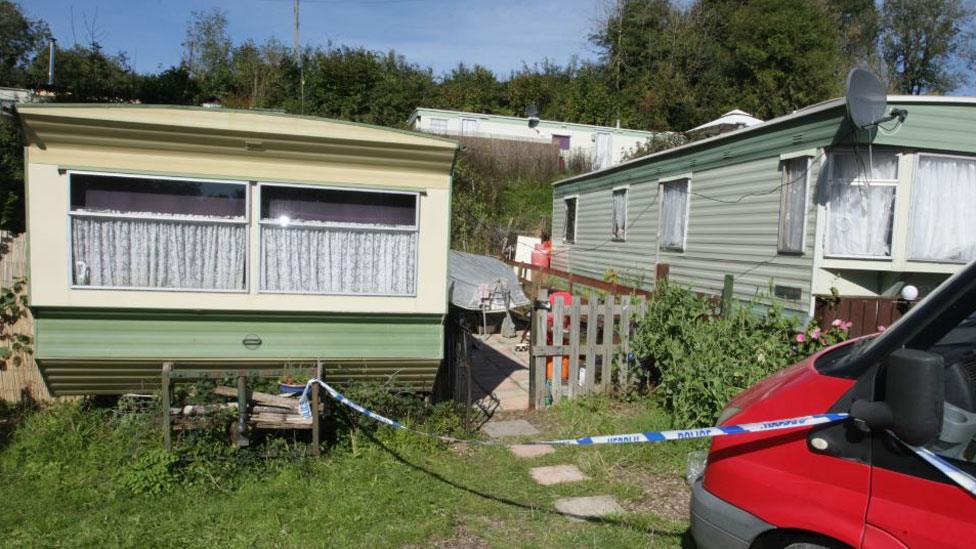
Simon Clark's caravan (l) was next door to Steven Baxter's
Police found Mr Ward after a few days, but despite several sightings of Baxter, including CCTV footage of him wearing a wig, he continued to evade capture.
A reward of £5,000 was later offered by Crimestoppers for information leading to his arrest.
Baxter, who also used the pseudonyms Steve Rowley, William Tidy and Wayne Tidy, was seen in Bridgend, more than 60 miles (97km) away from the caravan park where Mr Clark died, the day after the fight.
A week later, Swansea station was closed and evacuated after reports Baxter was on a train coming into the city, but he was not found.
Eventually, he was discovered less than two miles away from the scene of the stabbing on a largely inaccessible section of coastline at Marros, when some members of the public became suspicious after they spotted his blue tent hidden beneath a tree, one of a number of locations he hid out in.
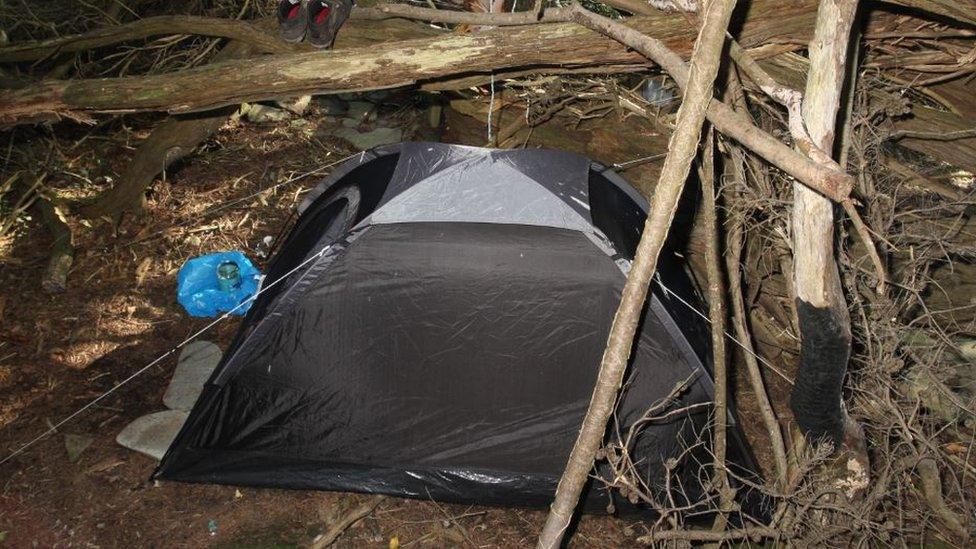
Steven Baxter lived in a number of locations including a tent while on the run
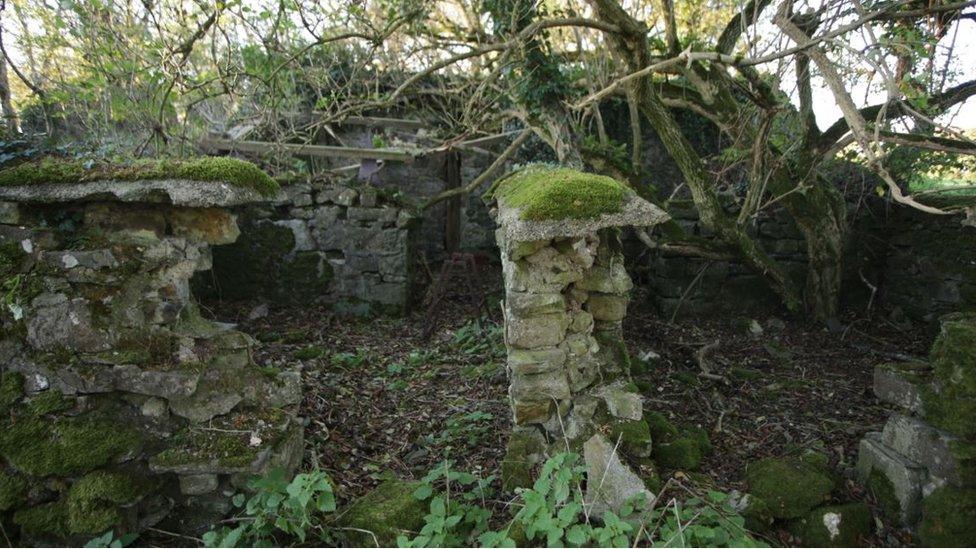
Another site found by the police where Baxter stayed

You may also be interested in:

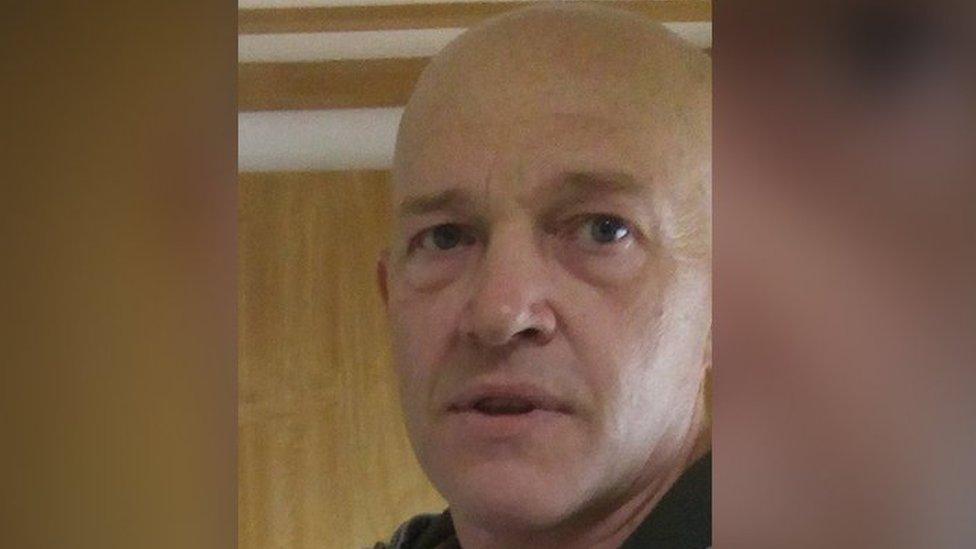
A reward of £5,000 was offered for information leading to Steve Baxter's arrest
On 27 October, exactly a month after Mr Clark was stabbed, armed police swarmed on the popular wild camping spot and arrested Baxter.
Det Ch Insp Paul Jones of Dyfed-Powys Police, the senior investigator on the case, said: "I get asked why he returned to the area of the crime and I am convinced it was familiarity.
"He returned to an area that he knew well. He portrayed himself as an outdoors person who could live off the land. As we discovered his hides, it was evident that this was not necessarily the case and he was showing signs of starting to struggle living outdoors."
During the trial, Baxter said the stabbing had been a "reflex" reaction after he was stabbed in the arm in the fight between the three men, claiming he "feared for his life".
The court had heard all three had been involved in growing cannabis, with many people at the holiday site smoking the drug.
Baxter was given a life sentence with a minimum term of 24 years on Tuesday, while Mr Ward's partner Julie Harris, who pleaded guilty to perverting the course of justice at an earlier hearing, was given a 14-month jail term suspended for two years.

Steven Baxter was caught after a month on the run living in a tent
- Published9 April 2019

- Published4 October 2018

- Published8 April 2019
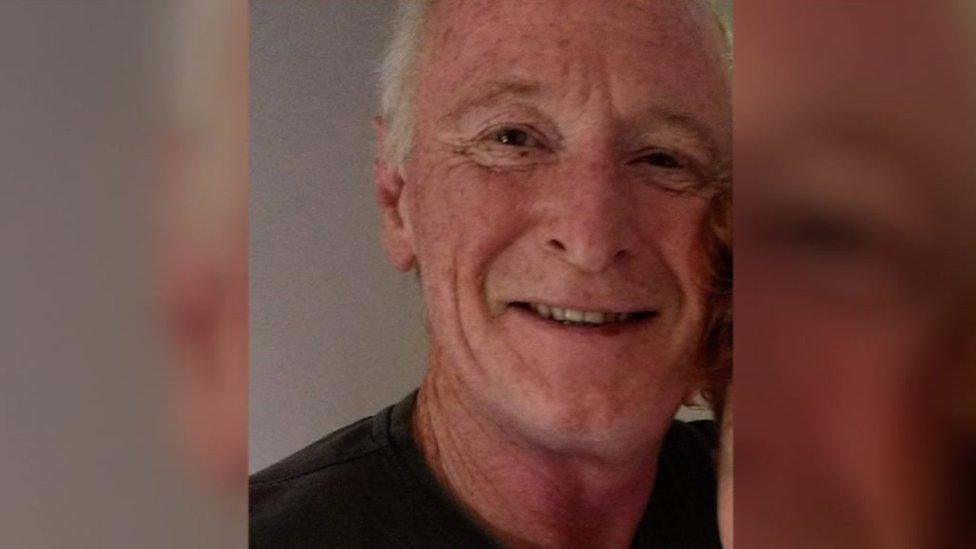
- Published2 October 2018

- Published27 March 2019

- Published18 March 2019

- Published1 April 2019

- Published8 October 2018
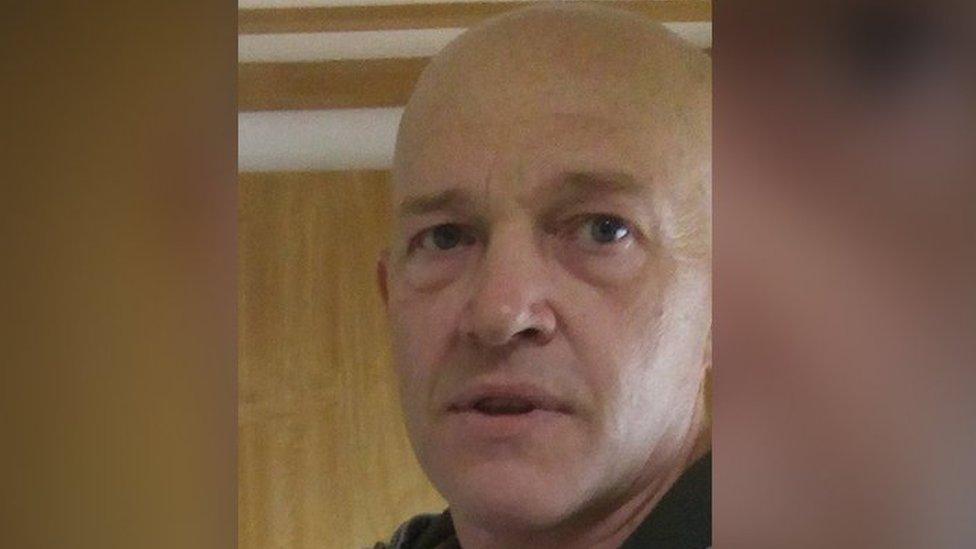
- Published15 October 2018

- Published18 October 2018

- Published30 October 2018
